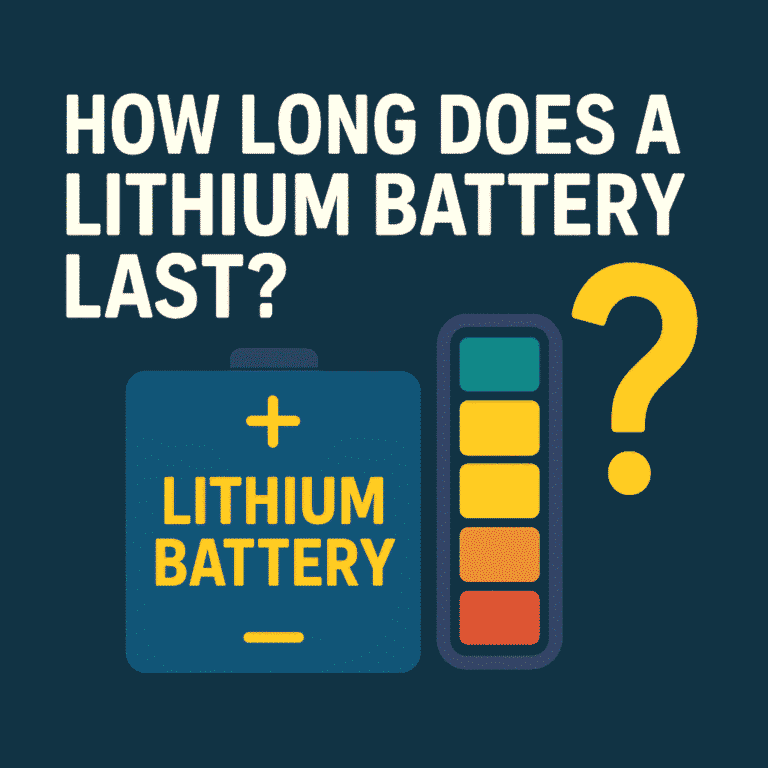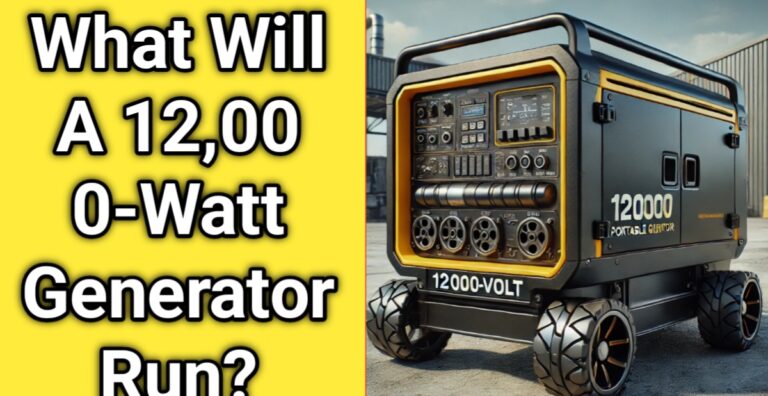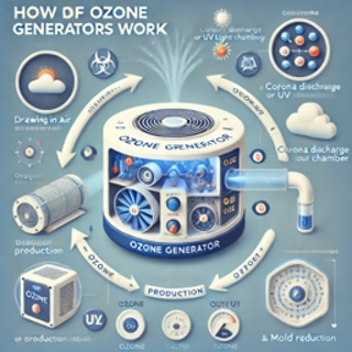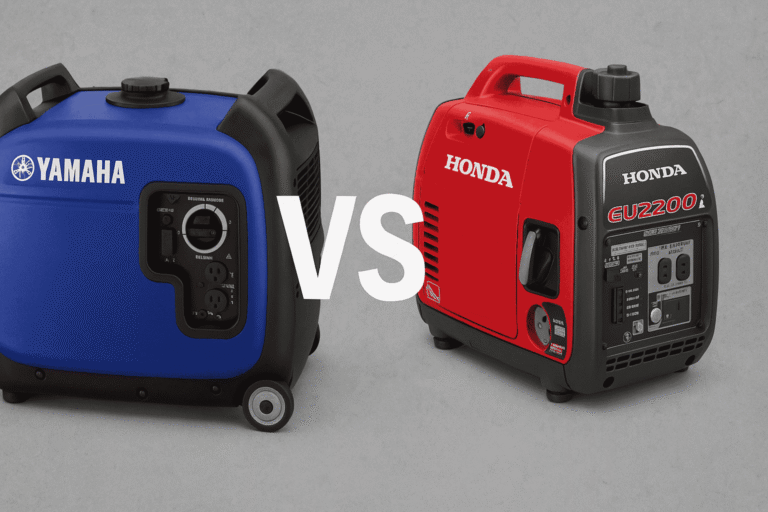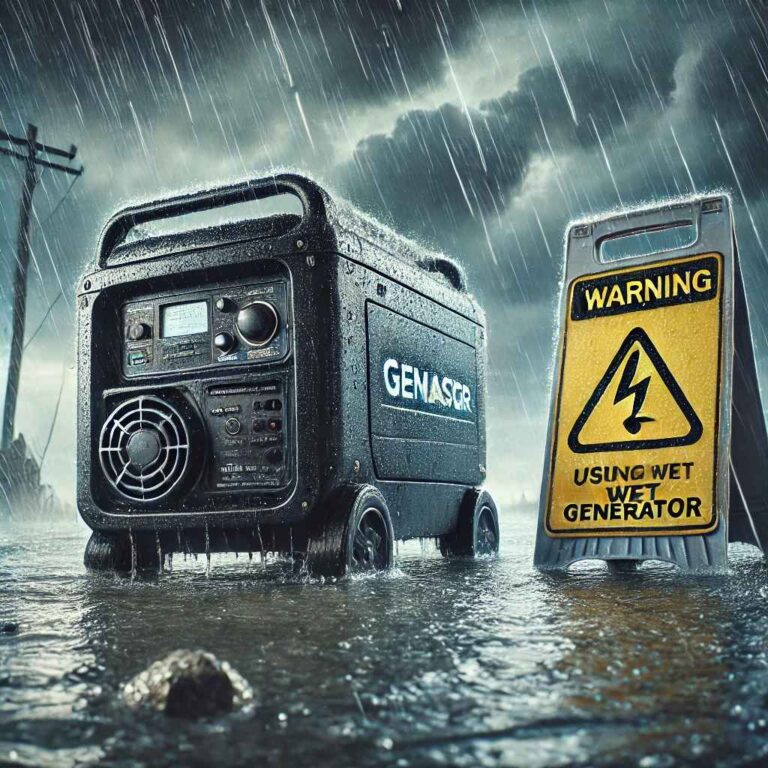Generator Lifespan & Runtime Explained – How Long Do They Last?
Introduction
When it comes to backup power, one of the first questions people ask is, “How many hours will a generator last?” The answer isn’t simple, because a generator’s performance depends on many factors like fuel type, load, and maintenance. Some models are designed for short-term use, while others can run continuously for days.
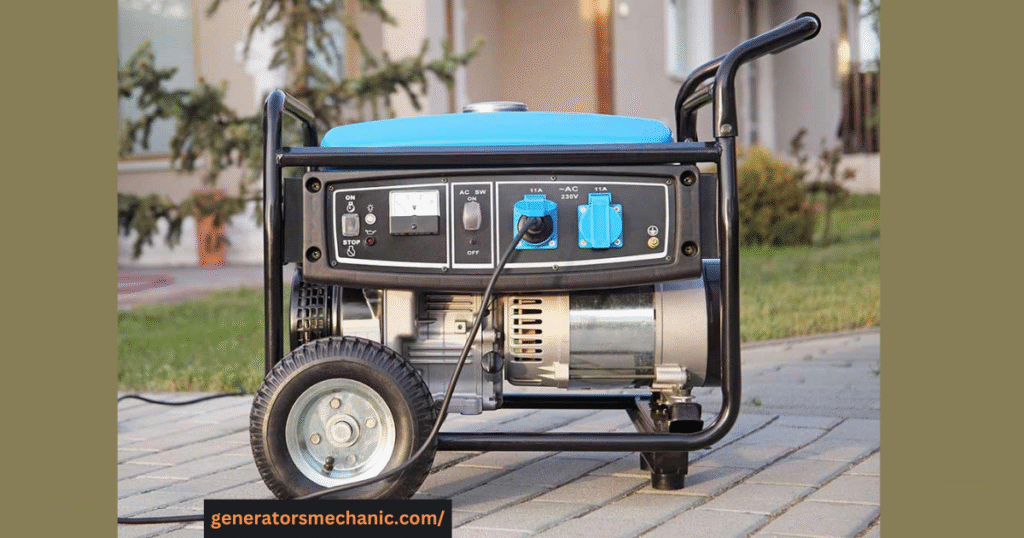
A common concern is, How long does a generator last on a tank of gas? In most cases, portable generators provide around 6–12 hours of power on a full tank. Still, larger models or standby units can run much longer, especially when connected to propane or natural gas.
Understanding the difference between a generator’s runtime per tank and its overall lifespan is essential. This not only helps you choose the right generator for your needs but also ensures you know what to expect in terms of performance and durability.
Generators are lifesavers during power outages, camping trips, or outdoor work. But one question always comes to mind: how many hours will a generator last? The answer isn’t the same for every model—it depends on fuel type, size, maintenance, and how you use it. Let’s break it down clearly so you know exactly what to expect.
Understanding Generator Lifespan vs. Runtime
When discussing generators, two terms are often confused: lifespan and runtime. Although they sound similar, they mean very different things.
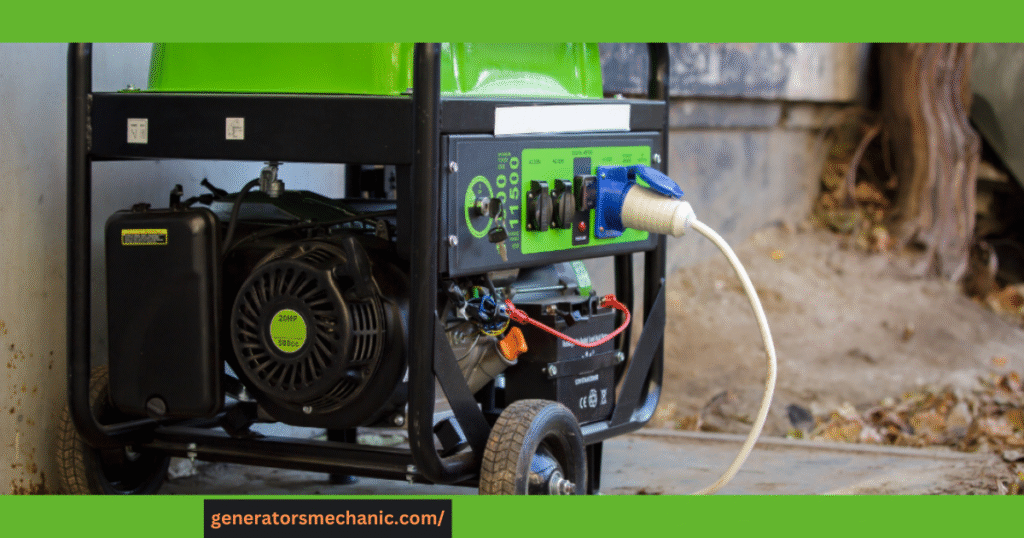
Generator runtime refers to how long the machine can operate on a single fuel source—whether it’s a full tank of gasoline, diesel, or a continuous supply of natural gas. For example, people often ask, “How long can a portable generator run continuously?” The answer depends on the size of the fuel tank, the load you are putting on it, and the type of generator you’re using. In most cases, portable generators can run anywhere between 6 to 12 hours per tank, though larger or more efficient models may last even longer.
On the other hand, generator lifespan is about the total number of hours or years a generator can serve before it wears out. This depends on the build quality, how well it’s maintained, and how frequently it’s used. A well-cared-for generator can provide reliable service for thousands of hours, while poor maintenance can cut its life short.
In short, runtime tells you how long your generator will work today, while lifespan tells you how long it will last over the years. Understanding this difference helps you plan for both short-term needs and long-term reliability.
Generator Runtime (Hours Per Tank of Fuel)
Runtime simply means how long your generator can operate on a full tank of fuel. For example, a portable generator might run for 6–10 hours on a tank, while a larger standby model could run for days if connected to natural gas.
Generator Lifespan (Total Usage Over Years)
Lifespan is the total number of hours or years your generator can serve you before it wears out completely. With proper care, some models can last decades.
Factors Affecting Generator Runtime (Hours Per Tank)
The number of hours a generator can run on a full tank isn’t fixed—it depends on several factors. One of the biggest is fuel type. Gasoline-powered generators usually provide 6–12 hours of runtime per tank, while diesel models can often run longer thanks to their fuel efficiency. On the other hand, propane and natural gas generators can run for extended periods as long as they remain connected to a steady fuel source.
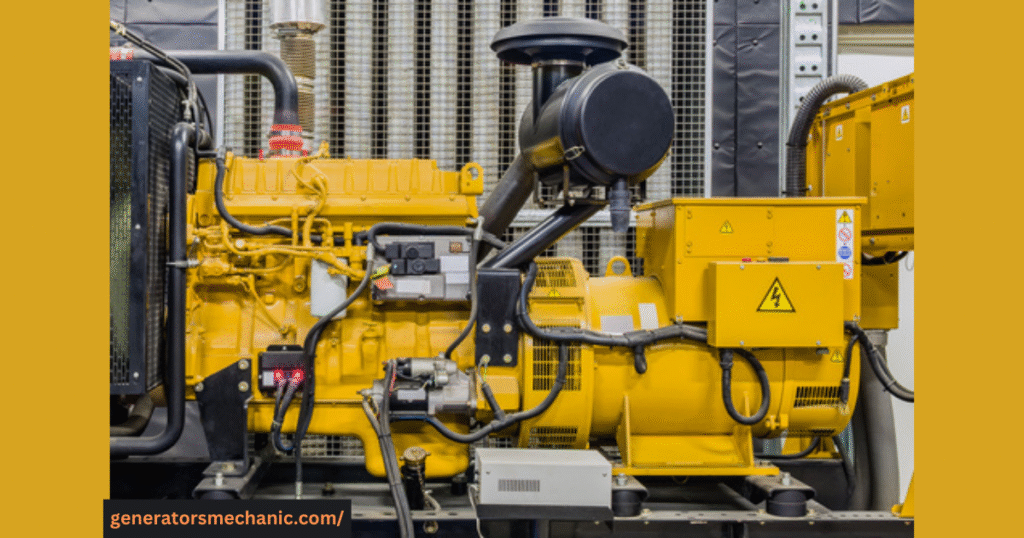
Another key factor is load capacity. The more appliances and devices you connect, the faster the fuel burns. Running a generator at half load can easily double the runtime compared to running it at full capacity. For example, many homeowners ask, “How many hours will a generator last on a house?” The answer depends on whether you’re powering just essentials like lights and refrigerators, or heavy-duty appliances such as air conditioners and pumps.
Lastly, generator size and design also play a role. Smaller portable units may only last a few hours before refueling, while larger standby models are designed for long, continuous use. Modern inverter generators further improve efficiency by automatically adjusting engine speed to match demand, allowing you to get more hours of power from each tank.
Fuel Type
Gasoline generators usually run 6–12 hours per tank, while diesel models are more efficient and can run longer. Propane and natural gas units can run continuously as long as fuel is supplied.
Load Capacity
The more appliances you connect, the faster the fuel burns. A generator running at half load will last much longer than one operating at full capacity.
Generator Size and Model
A small portable generator can’t run as long as a large standby unit. Different models are designed for different use cases.
Factors Affecting Generator Lifespan (Total Hours Over Years)
A generator’s total lifespan depends on several factors, and understanding them can help you get the most out of your investment. People often ask, “How many hours will a generator last in a day?” While the answer varies based on the type of generator and fuel source, the bigger picture is about how well the machine holds up over the years.
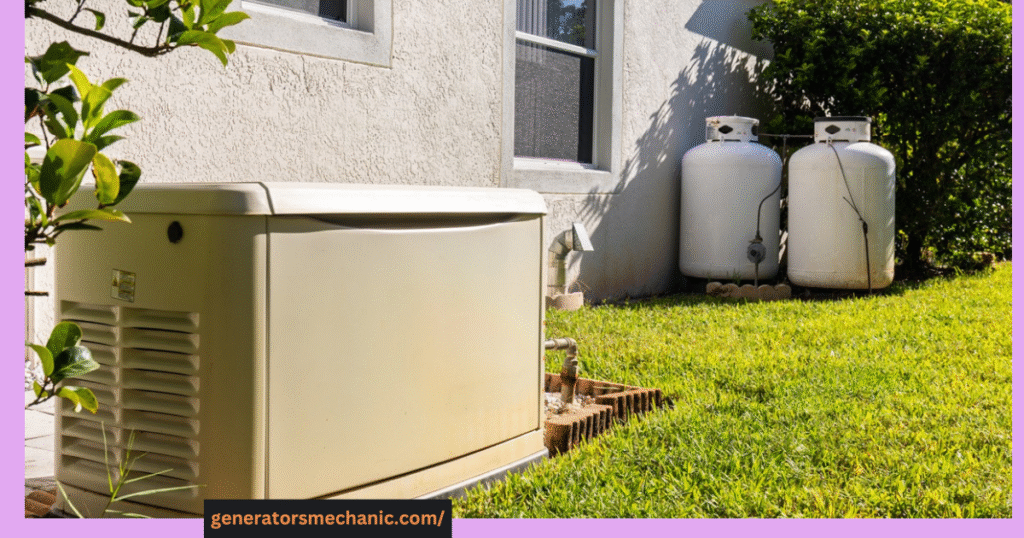
One of the most important factors is build quality and brand reputation. Generators from trusted manufacturers typically last longer because they are made with stronger engines and reliable components. Cheaper models may save money upfront, but often wear out much faster.
Another major factor is maintenance and servicing. Just like a car, a generator needs regular oil changes, filter replacements, and proper inspections. Skipping these steps shortens its life dramatically. On the other hand, consistent care can add thousands of hours to its overall lifespan.
Lastly, operating conditions play a big role. Generators used in extreme weather, dusty areas, or humid environments experience more wear and tear. Running the machine at full load constantly can also reduce its total lifespan, while using it at half load keeps it more stable and efficient over the years.
In short, how long your generator lasts doesn’t only depend on how many hours it runs in a single day, but also on the long-term care, environment, and overall usage patterns.
Quality of Build and Brand
High-quality brands build durable engines that can last thousands of hours more than cheaper models.
Regular Maintenance and Servicing
Oil changes, filter replacements, and inspections are essential to keep your generator healthy. Neglecting maintenance shortens its life drastically.
Operating Conditions
Extreme heat, cold, dust, or moisture can reduce efficiency and wear out parts faster.
Average Lifespan of Different Generator Types
Not all generators are built the same, and their lifespan can vary a lot depending on the type and how they are used. On average, portable generators, inverter generators, and standby generators each offer very different ranges of durability and operating hours.

Portable generators are typically designed for short-term or emergency use. With proper maintenance, they can last between 1,000 to 3,000 hours. These models are handy for occasional power cuts or outdoor activities, but are not meant for constant, heavy use.
Inverter generators are more efficient and quieter, making them ideal for sensitive electronics and recreational use. With good care, they can run between 2,000 to 4,000 hours over their lifetime. Their advanced technology and fuel efficiency make them a favorite choice for many homeowners and campers.
Standby generators, on the other hand, are the most durable. These permanent installations are built to automatically power your home during outages and can last anywhere from 10,000 to 30,000 hours with regular servicing. Many people often ask, “How long can a generator run without electricity?” The truth is, a well-maintained standby generator can operate continuously for days or even weeks, as long as it has a steady fuel supply.
In short, the lifespan of a generator depends heavily on its type, maintenance, and how often it’s used. Choosing the right generator for your needs ensures that it serves you reliably for years.
Portable Generators
Generally lasts 1,000–3,000 hours depending on care. Ideal for short-term use.
Inverter Generators
More efficient and quieter, with a lifespan of around 2,000–4,000 hours if properly maintained.
Standby Generators
The most durable option, capable of lasting 10,000–30,000 hours with regular servicing. Some can run for decades when well cared for.
How to Extend the Life of Your Generator
Taking care of your generator is the best way to make sure it serves you for years without unexpected breakdowns. Just like a car engine, a generator needs regular attention and proper usage habits to reach its maximum lifespan.
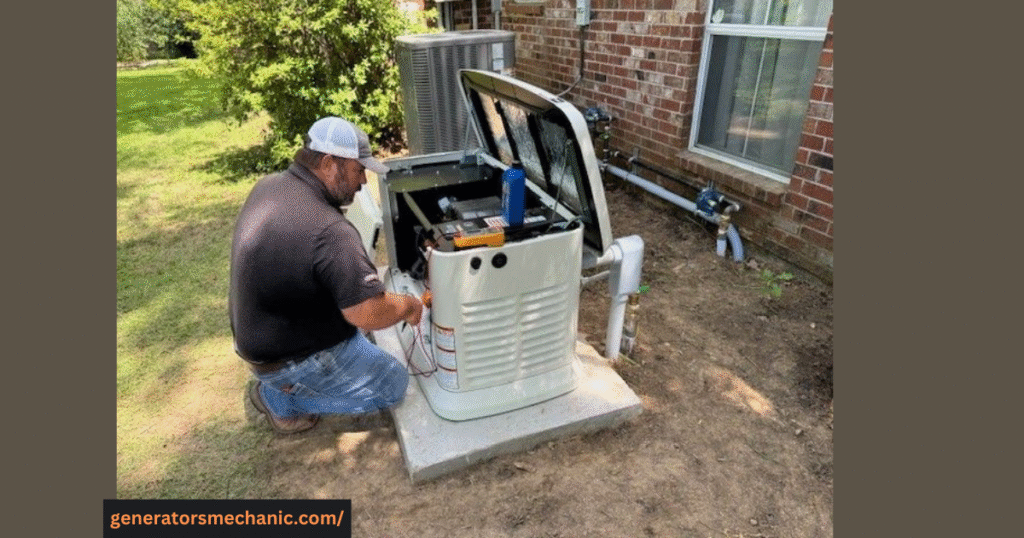
One of the most important steps is following a maintenance schedule. Routine oil changes, air filter cleaning, and spark plug replacements prevent damage and keep the engine running smoothly. Skipping these basics may save time in the short term, but it reduces your generator’s overall life.
Fuel quality also plays a major role. Always use clean, fresh fuel and store it properly to avoid contamination. For example, many people ask, “How long does a diesel generator last on a full tank?” The answer depends on the model and load, but diesel units are usually more fuel-efficient and can run longer than gasoline ones. Keeping the fuel system clean and using high-quality diesel ensures both longer runtime per tank and a healthier engine overall.
Another tip is to avoid constant overloading. Running your generator at full capacity for long periods puts stress on the engine and reduces efficiency. Operating at around 50–70% load is ideal for both fuel savings and longevity.
Lastly, think about storage conditions. If your generator sits unused for months, store it in a clean, dry place and run it occasionally to keep the parts lubricated. Seasonal care, like draining old fuel or using a stabilizer, also helps prevent long-term issues.
By combining regular maintenance, quality fuel, optimal load usage, and proper storage, you can significantly extend the life of your generator and get the best value out of your investment.
Follow a Maintenance Schedule
Stick to oil changes, spark plug replacements, and servicing guidelines.
Use Clean, High-Quality Fuel
Dirty fuel can clog parts and reduce performance. Always store fuel properly.
Run the Generator at Optimal Load
Avoid running at full capacity all the time—half load operation is more efficient and safer.
Store Properly During Off-Season
Keep your generator covered, dry, and clean when not in use to prevent damage.
Signs Your Generator Is Nearing the End of Its Life
Like any machine, generators don’t last forever. Over time, parts wear down, efficiency decreases, and you’ll start to notice signs that your generator is reaching the end of its service life. One of the most obvious signs is difficulty starting the generator. If it takes multiple attempts to get it running, or if it frequently stalls, that’s a red flag.
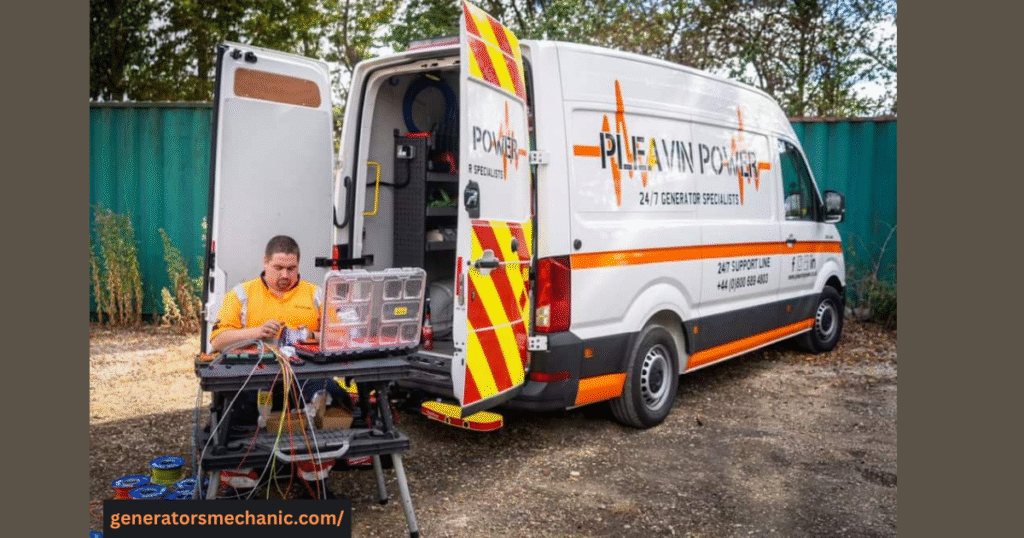
Another indicator is unusual noise or vibration. A generator that once ran smoothly but now produces rattling sounds or shakes excessively may have internal issues such as worn bearings or engine problems.
You should also keep an eye on fuel consumption. If your generator suddenly starts burning more fuel than usual for the same load, it’s a sign the engine is no longer running efficiently. Many people ask, “How long does a generator last on propane?” While propane generators can often run for days if supplied with fuel, even they will lose efficiency and runtime as the engine ages.
Lastly, frequent breakdowns and costly repairs are strong signs that replacement might be a better option than continuous fixing. A generator should give you reliable power, not constant headaches. Recognizing these early warning signs helps you prepare for repair, maintenance, or investing in a new unit before complete failure occurs.
- Trouble starting or frequent stalling
- Unusual noises or vibrations
- Higher fuel consumption than usual
- Frequent breakdowns or expensive repairs
Conclusion
So, how many hours will a generator last? The answer varies: portable units may give you a few thousand hours, while high-quality standby models can last tens of thousands of hours. The key lies in proper maintenance, choosing the right type, and using it wisely. With the right care, your generator can be a reliable partner for many years.
✅ FAQs (with answers)
How many hours can a generator run continuously?
It depends on the type. Portable generators usually run 6–12 hours per tank, while standby units connected to natural gas can run for days.
What is the average lifespan of a generator?
Portable generators last 1,000–3,000 hours, inverter models 2,000–4,000 hours, and standby generators can last up to 30,000 hours with proper care.
How do I extend the life of my generator?
Follow regular maintenance, use clean fuel, avoid overloading, and store it properly when not in use.
Can I run my generator 24/7?
Technically, yes, but only standby generators are designed for extended use. Portable units should be rested to prevent overheating and wear.
What are the signs that a generator is wearing out?
Difficulty starting, strange noises, higher fuel consumption, and frequent breakdowns are clear signs your generator may be near its end.
How long will a 3000-watt generator run?
A 3000-watt generator can usually run anywhere from 7 to 12 hours on a full tank of gas, depending on the load you put on it and the size of the fuel tank. If you’re only powering a few essentials, it may last longer. But if you’re running it close to its maximum capacity, the runtime will be shorter.
Can a generator run for 48 hours?
Technically, yes, but it’s not recommended to run a generator continuously for 48 hours without a break. Most portable generators are designed for shorter runs, like 8–12 hours at a time. Running it nonstop for two days can cause overheating, wear and tear, and possible engine damage.
Is it okay to run a generator all day?
Yes, you can run a generator all day if it’s maintained properly, but it’s best to give it breaks every 8–12 hours. This helps avoid overheating and allows you to check the oil, refuel safely, and ensure everything is running smoothly.
How long can you run a generator before giving it a break?
Most experts recommend giving your generator a break every 8–12 hours of continuous use. During this break, you should check oil levels, let the engine cool, and refuel. This routine keeps your generator in good health for long-term use.
Can a generator run all night?
Yes, many people run their generators overnight, especially during power outages. But you should only do this if the generator is in a well-ventilated outdoor area to prevent carbon monoxide risks. Make sure fuel is topped up and noise levels won’t disturb neighbors or your own sleep.
What is the 20 20 20 rule for generators?
The 20-20-20 rule is a simple safety guideline: keep your generator 20 feet away from your home, 20 feet from windows and doors, and 20 feet from air vents. This reduces the risk of dangerous carbon monoxide entering your living space.
What generator can run 24 hours?
Whole-house standby generators, especially those connected to a natural gas or propane line, can run continuously for 24 hours or more without issues. Unlike portable units, they’re built for long-term operation and have better cooling and fueling systems.
What is considered low hours for a generator?
For most generators, anything under 1,000 hours is considered low hours, especially if the machine has been well-maintained. Just like cars, the fewer the hours, the less wear on the engine. Standby units with less than 500 hours are often considered “barely used.”



